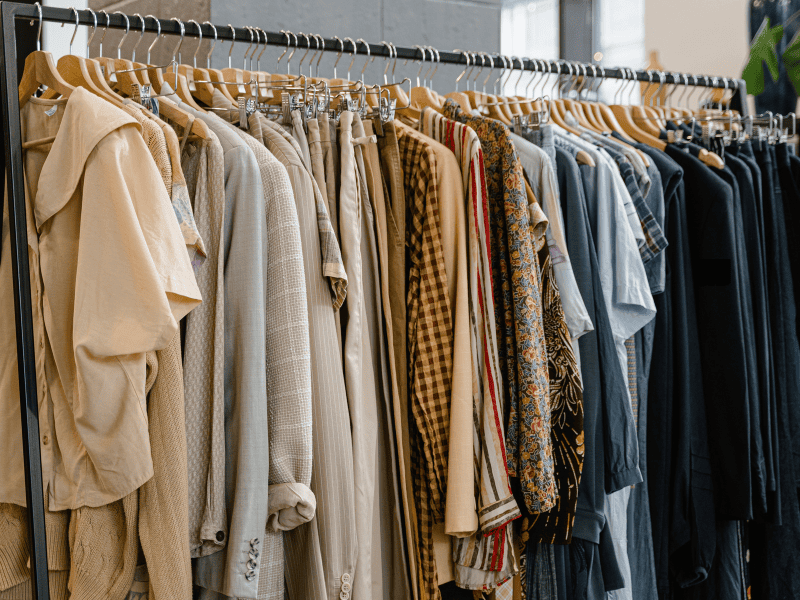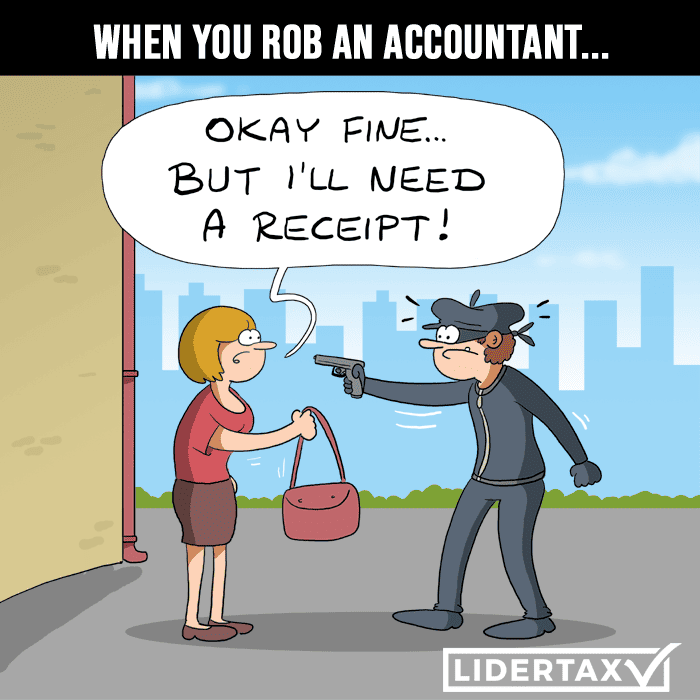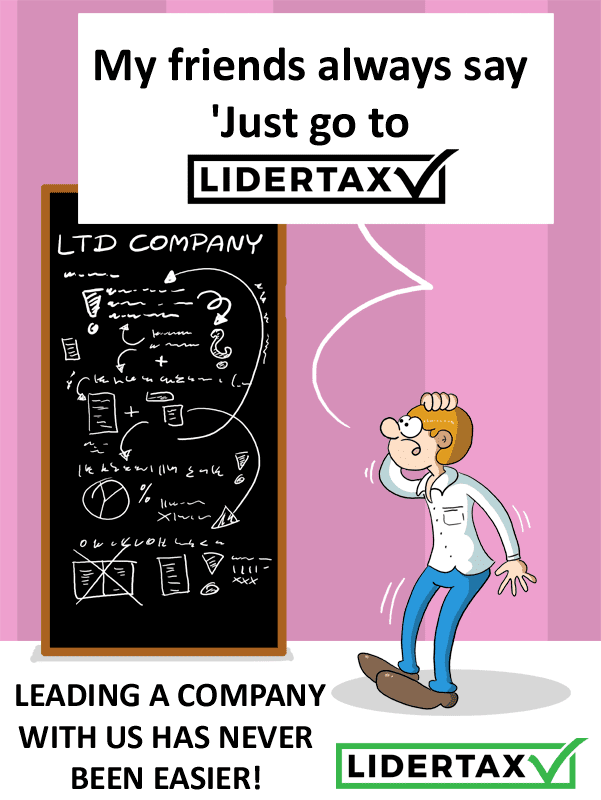
As an accountant in Medway, we regularly encounter questions about clothing expenses in self-assessment returns. Many self-employed individuals wonder if they can claim work clothes as business expenses. Unfortunately, this area causes considerable confusion and leads to common mistakes. The rules surrounding clothing claims are strict and often misunderstood. However, understanding these regulations is essential for accurate self-assessment filing. Moreover, knowing what you can legitimately claim helps reduce your tax bill whilst staying compliant. This guide explains exactly which clothing expenses HMRC allows in your self-assessment. Additionally, we’ll show you what cannot be claimed and why. Furthermore, we’ll provide practical advice to help you avoid costly errors. Whether you wear a uniform or business attire, this article clarifies the rules. Consequently, you’ll understand how to approach clothing expenses with confidence. Let’s explore what an accountant in Medway recommends for your self-assessment clothing claims.
Understanding Self-Assessment Clothing Rules: What a Medway Accountant Needs You to Know
The fundamental rule for any self-assessment expense claim is remarkably straightforward. However, applying it to clothing purchases often proves challenging for many taxpayers.
The „Wholly and Exclusively” Rule
HMRC requires that all business expenses be incurred „wholly and exclusively” for business purposes. In other words, the expense must serve only your business activities. Therefore, if an item has any personal use whatsoever, it typically cannot be claimed.
This principle comes from Section 34(1)(a) of the Income Tax Act 2005. Consequently, it applies to every expense you wish to claim on your self-assessment. As your accountant in Medway would explain, this rule is non-negotiable.
The Problem of „Dual Purpose”
Most clothing items fall into what HMRC calls „dual purpose” expenses. This means they serve both business and personal functions simultaneously. For example, a smart suit keeps you warm and professional at client meetings. However, it also provides basic clothing needs that exist regardless of your business.
Case law, such as Newsom v Robertson, established this „duality of purpose” concept clearly. Similarly, ordinary clothing fails the „wholly and exclusively” test because of this dual nature. Therefore, even expensive business attire typically cannot be claimed on self-assessment.
Why This Matters for Your Self-Assessment
Understanding this fundamental principle prevents mistakes that could trigger HMRC enquiries. Moreover, it helps you identify which clothing expenses are genuinely allowable. As a result, you’ll complete your self-assessment accurately and confidently.
An experienced accountant in Medway can help you navigate these complex rules effectively. Furthermore, professional guidance ensures you maximise legitimate claims whilst avoiding disallowed expenses. Consequently, your self-assessment will be both compliant and optimised for tax efficiency.
Which Clothing Can You Claim? Self-Assessment Guidelines from Accountants in Medway
Despite strict rules, certain clothing categories are perfectly acceptable for self-assessment claims. In fact, HMRC explicitly allows specific types of work clothing as business expenses. Therefore, understanding these categories helps you claim everything you’re entitled to.
Branded Uniforms and Company Clothing
Uniforms with your company logo clearly meet the „wholly and exclusively” test. This is because branded clothing serves no personal purpose outside work. Moreover, items with permanently displayed logos cannot reasonably be worn casually.
Examples include polo shirts with embroidered company names or jackets with large logos. Additionally, branded hi-visibility clothing and work aprons qualify for self-assessment claims. As your accountant in Medway would confirm, these items are completely legitimate business expenses.
Protective Clothing and Safety Equipment
Safety equipment required for your work is always allowable on self-assessment returns. Furthermore, this category includes a wide range of essential items. Consequently, many trades can claim substantial protective clothing expenses.
Steel-toe-capped boots protect your feet on building sites and qualify as business expenses. Similarly, hard hats, safety goggles, and high-visibility jackets are all claimable. Additionally, specialist gloves and protective overalls meet HMRC’s criteria perfectly.
These items serve only one purpose: keeping you safe whilst working. Therefore, they pass the „wholly and exclusively” test without question. An accountant in Medway will always approve these self-assessment claims.
Costumes and Specialist Performance Wear
Performers, entertainers, and certain professionals can claim costume expenses on their self-assessment. However, the costume must be genuinely unsuitable for everyday wear. Consequently, theatrical costumes and character outfits typically qualify.
For instance, a children’s entertainer can claim their clown costume as a business expense. Likewise, actors can claim period costumes and stage wear on their self-assessment. Additionally, musicians performing in specific attire may claim those specialist items.
The key question remains: could you realistically wear this clothing outside work? If the answer is no, then the expense likely qualifies. Nevertheless, consulting an accountant in Medway ensures your self-assessment claims are properly justified.
Common Self-Assessment Mistakes: Why Your Medway Accountant Rejects Suit Claims
This section addresses the most frequent clothing claim errors in self-assessment returns. Understanding these mistakes helps you avoid HMRC challenges and potential penalties. Moreover, knowing what’s not allowed saves time and prevents disappointment.
Business Suits and Formal Wear
The single biggest self-assessment mistake involves claiming costs for suits and business attire. However, no matter how expensive or professional your suit appears, it remains ordinary clothing. Therefore, HMRC categorically disallows these expenses.
A consultant’s £500 suit might be essential for client meetings and professional credibility. Nevertheless, it could theoretically be worn to weddings or formal social occasions. Consequently, this dual-purpose nature makes it ineligible for self-assessment claims.
As your accountant in Medway will explain, this rule applies regardless of intention. Even if you never wear your suit outside work, HMRC considers the possibility. Therefore, business suits simply cannot be claimed as expenses on self-assessment returns.
Smart-Casual Clothing Required by Clients
Many contractors face dress code requirements from their clients or workplace policies. For example, some venues require black trousers and white shirts for all staff. However, these items still count as ordinary clothing for self-assessment purposes.
Although the dress code is a business requirement, the clothing itself remains everyday wear. Therefore, you cannot claim black trousers or white shirts on your self-assessment. Similarly, smart shoes and plain blouses remain ineligible despite being work necessities.
An accountant in Medway encounters these queries frequently and must explain the disappointing truth. Unless the clothing is branded, protective, or genuinely costume-like, self-assessment claims will fail.
The Three-Question Test for Self-Assessment Clothing Claims
Before claiming any clothing expense on your self-assessment, apply this simple test. Firstly, ask yourself: „Is this item required for my safety at work?” Secondly, consider: „Does it display my company branding permanently?” Finally, question: „Could I wear this outside work?”
If you answer „yes” to question one or two, the claim is likely valid. However, answering „yes” to question three typically disqualifies the expense from self-assessment. Therefore, this quick test helps prevent errors before submitting your return.
Nevertheless, when in doubt, consult an accountant in Medway for professional advice. Their expertise ensures your self-assessment is accurate and fully compliant with HMRC regulations.
Self-Assessment Documentation: How an Accountant in Medway Keeps Your Claims Safe
Proper documentation is absolutely essential for defending your self-assessment clothing claims. Without adequate records, even legitimate expenses may be rejected during HMRC enquiries. Therefore, maintaining excellent documentation protects you and validates your claims.
Keep All Receipts and Invoices
Every allowable clothing purchase requires a receipt or invoice for your self-assessment records. Moreover, digital copies are acceptable, but ensure they remain legible and accessible. Additionally, store these documents securely for at least five years after submission.
For example, when purchasing branded polo shirts, retain the supplier’s invoice clearly. Similarly, keep receipts for safety boots, protective equipment, and any other work clothing. As your accountant in Medway will emphasise, documentation is your first line of defence.
Add Clear Notes to Your Records
Sometimes receipt descriptions appear vague or unclear for self-assessment purposes. Therefore, adding handwritten notes directly onto receipts provides valuable context later. Consequently, this simple habit prevents confusion during HMRC reviews.
For instance, a receipt stating simply „footwear” should be annotated with details. Write „steel-toe safety boots for construction work” directly on the document. Similarly, clarify „clothing” entries as „branded company polo shirts with logo.”
Your accountant in Medway can review these records and confirm they’re adequate. Furthermore, clear documentation makes self-assessment preparation much faster and more efficient.
Never Send Original Documents with Self-Assessment
Many taxpayers mistakenly believe they should attach receipts to their self-assessment returns. However, HMRC does not require or want supporting documents at submission time. Instead, you must simply keep records available if requested later.
Store all clothing expense documentation safely in chronological or categorical order. Additionally, consider using cloud storage for backup protection against loss or damage. Therefore, if HMRC queries your self-assessment, you can quickly provide evidence.
An experienced accountant in Medway will establish proper filing systems for your records. Consequently, you’ll always be prepared for any potential enquiries or audits.
Apportioning Related Costs
Whilst individual clothing items cannot usually be apportioned, related costs sometimes can be. For example, if you wash uniforms alongside personal clothing, consider proportional costs. Therefore, reasonable apportionment of laundry expenses may be claimed on self-assessment.
Suppose one washing machine load costs £2 and your uniform comprises 20% of the load. Consequently, you could claim £0.40 as a business expense for that wash. Although individual amounts seem small, they accumulate significantly over the year.
However, ensure your apportionment method is logical and defensible to HMRC. Furthermore, your accountant in Medway can advise on appropriate approaches for your self-assessment.
Self-Assessment Clothing Claims: When to Consult Your Medway Accountant
Understanding when to seek professional help prevents costly mistakes on your self-assessment. Moreover, accountants provide valuable guidance that extends far beyond simple clothing claims. Therefore, knowing when to consult experts protects your interests and ensures compliance.
Complex or Unusual Clothing Situations
Some professions have unique clothing requirements that don’t fit standard HMRC categories. For instance, personal trainers, yoga instructors, or specialist consultants face grey areas. Therefore, professional advice from an accountant in Medway becomes essential.
Similarly, if you’re purchasing expensive protective equipment or specialist uniforms, seek confirmation first. An accountant can assess whether your self-assessment claim will withstand HMRC scrutiny. Consequently, you avoid wasting money on items you cannot ultimately claim.
Additionally, mixed-use situations require careful consideration and expert judgment. Therefore, don’t hesitate to discuss your specific circumstances before making purchases.
Significant Expense Amounts
When clothing expenses exceed several hundred pounds annually, professional review becomes prudent. Moreover, large claims naturally attract more attention during HMRC reviews of self-assessment returns. Therefore, ensuring documentation and justification are perfect provides essential protection.
Your accountant in Medway can review all claimed items before submission. Furthermore, they’ll identify any potentially problematic claims and suggest appropriate adjustments. Consequently, your self-assessment proceeds smoothly without triggering unnecessary enquiries.
Avoiding HMRC Enquiries and Penalties
HMRC regularly reviews self-assessment returns and queries suspicious or incorrect claims. However, working with an accountant in Medway significantly reduces enquiry risks. Moreover, professional preparation demonstrates diligence and compliance from the outset.
If HMRC does query your clothing expenses, professional representation proves invaluable. Your accountant can communicate with HMRC directly and provide necessary evidence. Therefore, you avoid stress whilst ensuring matters are handled correctly and efficiently.
Additionally, accountants understand precisely what HMRC expects in self-assessment documentation. Consequently, their involvement from the start prevents problems before they arise.
Ongoing Tax Planning and Optimisation
Beyond simple self-assessment completion, accountants provide strategic tax planning throughout the year. For example, they advise on timing purchases to maximise tax efficiency. Similarly, they identify all available allowances and reliefs relevant to your circumstances.
An accountant in Medway becomes a trusted partner in your business success. Furthermore, their expertise extends to VAT, corporation tax, and other financial matters. Therefore, establishing this relationship benefits you far beyond annual self-assessment filing.
Ultimately, professional accounting services cost less than potential penalties and mistakes. Moreover, the peace of mind and time savings justify the investment repeatedly.
Summary: Key Points About Self-Assessment Clothing Claims
Understanding clothing expenses for self-assessment doesn’t need to be overwhelming or confusing. However, following HMRC’s strict rules is essential for compliance and avoiding penalties. Therefore, let’s recap the most important points every taxpayer should remember.
What You Can Claim on Self-Assessment
Firstly, uniforms with permanent company branding are always allowable business expenses. Additionally, protective clothing required for workplace safety qualifies without question. Furthermore, genuine costumes and performance wear for entertainers meet HMRC’s strict criteria.
These items pass the „wholly and exclusively” test because they serve only business purposes. Consequently, you can claim them confidently on your self-assessment returns.
What You Cannot Claim
Conversely, ordinary business clothing like suits and formal wear remains ineligible for self-assessment. Similarly, smart-casual items required by dress codes cannot be claimed as expenses. Moreover, even expensive designer business attire fails HMRC’s dual-purpose test completely.
Remember, if the clothing could theoretically be worn outside work, it’s not allowable. Therefore, save disappointment by understanding these limitations before purchasing items.
Documentation Protects Your Claims
Every allowable expense requires proper documentation for at least five years. Additionally, clear notes on receipts prevent confusion during potential HMRC enquiries. Furthermore, organised record-keeping makes self-assessment preparation significantly easier and faster.
Your accountant in Medway can establish effective systems that protect your interests. Consequently, you’ll always be prepared if questions arise about your self-assessment.
Professional Help Provides Peace of Mind
Complex situations, large expenses, or unusual circumstances warrant professional advice from an accountant. Moreover, expert guidance prevents costly mistakes and reduces HMRC enquiry risks substantially. Therefore, investing in professional self-assessment support delivers excellent value and protection.
An experienced accountant in Medway understands local businesses and HMRC’s expectations perfectly. Furthermore, they provide ongoing support that extends far beyond annual self-assessment filing.
Summary: Key Points About Self-Assessment Clothing Claims
Understanding clothing expenses for self-assessment doesn’t need to be overwhelming or confusing. However, following HMRC’s strict rules is essential for compliance and avoiding penalties. Therefore, let’s recap the most important points every taxpayer should remember.
What You Can Claim on Self-Assessment Firstly, uniforms with permanent company branding are always allowable business expenses. Additionally, protective clothing required for workplace safety qualifies without question. Furthermore, genuine costumes and performance wear for entertainers meet HMRC’s strict criteria.
What You Cannot Claim Conversely, ordinary business clothing like suits and formal wear remains ineligible for self-assessment. Similarly, smart-casual items required by dress codes cannot be claimed as expenses.
Documentation Protects Your Claims Every allowable expense requires proper documentation for at least five years.
Professional Help Provides Peace of Mind An experienced accountant in Medway understands local businesses and HMRC’s expectations perfectly.
Conclusion
Claiming clothing expenses on self-assessment requires careful understanding of HMRC’s strict regulations. Working with an accountant in Medway provides invaluable expertise and confidence. Don’t risk penalties or miss legitimate claims – consult a qualified accountant in Medway today – CLICK.




